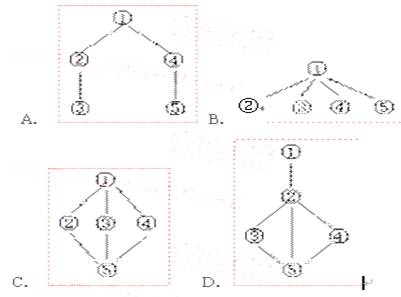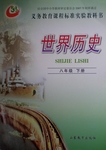题目内容
There is a boy in my gym class (I’ll call him Bill) who has unbearably yellow teeth that almost make everyone feel unpleasant. Recently another boy told Bill that he should “go Ajax” his teeth. Bill was crushed. Had the other boy been thinking, he would have realized that there is a better way to handle such a situation. He could have dealt with it with tact. He could have showed this hurtful truth in a more careful, sensitive way—that’s “tact”.
If a person isn’t sensitive to another’s feelings, there is no way he or she can be tactful. Yesterday, my 5-year-old brother proudly announced that he had cleaned the screen on our television set. Unfortunately, he used furniture polish(亮光油), which produced an oily film on the television screen. My mother smiled and thanked him for his efforts—and then showed how to clean the screen properly. Her sensitivity enables my brother to keep his self-respect. Yet, sensitivity alone does not make tact.
“Tactfulness” also requires “truthfulness”. Doctors, for example, must be truthful. If a patient has just been disabled in an accident, a tactful doctor will tell the truth—but express it with sensitivity. The doctor may try to give the patient hope by telling them curing techniques under study or about advanced equipment now available. Doctors must use tact with patients relatives as well. Instead of bluntly saying, “Your husband is disabled,” a doctor might say, “I’m sorry, but your husband has lost feeling in his legs and…”
Tact should not be confused with trickery. Trickery occurs when a nurse is about to give a patient an injection and says, “This won’t hurt a bit.” Instead of trickery, the nurse might guarantee the patient that the discomfort of the injection is a small thing compared to the benefits of it. It would also be thoughtful for the nurse to tell the patients about some of these benefits.
Tact is a wonderful skill to have, and tactful people are usually admired and respected. Without tact our society would become an intolerable place to live in.
1.When told he should “go Ajax” his teeth, Bill probably felt ________________.
A.surprised B.cheated C.regretful D.painful
2.According to the author, his mother’s praise for the brother is _______________.
A.both sensitive and tactful B.sensitive but not tactful enough
C.truthful but not tactful D.sensitive but trickish
3.The fourth paragraph mainly talks about __________________.
A.how to comfort the patients
B.how to use trickery carefully
C.differences between trickery and promises
D.another feature of tact
4.Which of the following shows the structure of the passage?
(The numbers stand for the paragraphs)

【小题1】D
【小题2】B
【小题3】D
【小题4】C

 探究与巩固河南科学技术出版社系列答案
探究与巩固河南科学技术出版社系列答案阅读下面短文, 掌握其大意, 然后从1-25各题所给的四个选项中, 选出一个最佳答案。
When sailors are allowed ashore (登岸) after a long time at sea, they sometimes get drunk and cause trouble. 1 this reason, the navy (海军) 2 has its police in big ports. 3 sailors cause trouble, the police come and 4them.
One day, the police in a big seaport received a telephone call 5 a bar(酒吧)in the town. The barman said that a big sailor had got drunk and 6 the furniture in the bar. The officer 7 the police guard that evening said that he 8 immediately.
Now, officers who 9 and punish the sailors who were 10 drunk usually choose 11 policeman they could find to go with them. 12 this particular officer did not do this. Instead, he chose the smallest and 13 man he could find to go to the bar with him and 14 the sailor. Another officer who 15 there was surprised when he saw the officer of the guard choose 16 small man. 17 he said to him. "Why 18 you take a big man with you? You have to fight the sailor who 19."
"Yes, you are 20 right," answered the officer of the guard. "That is exactly 21 I 22 this small man. If you saw two policemen coming 23 you, and one of them was 24 the other, which one 25 you attack(攻击)?"
|
(1) |
A. In spite of |
B. Because of |
C. For |
D. To |
[ ] |
|
(2) |
A. always |
B. seldom |
C. forever |
D. sometimes |
[ ] |
|
(3) |
A. As |
B. Where |
C. Wherever |
D. Whenever |
[ ] |
|
(4) |
A. meet with |
B. deal with |
C. meet |
D. judge |
[ ] |
|
(5) |
A. about |
B. from |
C. in |
D. of |
[ ] |
|
(6) |
A. was breaking |
B. would break |
C. had broken into |
D. was breaking in |
[ ] |
|
(7) |
A. charging |
B. charged by |
C. in charge of |
D.in charge from |
[ ] |
|
(8) |
A. was leaving |
B. is coming |
C. will leave |
D. would come |
[ ] |
|
(9) |
A. would go |
B. need come |
C. dared come |
D. had to go |
[ ] |
|
(10) |
A. very |
B. very much |
C. heavily |
D. much more |
[ ] |
|
(11) |
A. the biggest |
B. a much bigger |
C. a bigger |
D. a big |
[ ] |
|
(12) |
A. In fact |
B. But |
C. So |
D. And |
[ ] |
|
(13) |
A. strong-looking |
B. weakest-looking |
C. stronger-looking |
D. strongest-looking |
[ ] |
|
(14) |
A. seize |
B. caught |
C. get rid of |
D. deal |
[ ] |
|
(15) |
A. was |
B. had been |
C. would be |
D. happened to be |
[ ] |
|
(16) |
A. such an |
B. so a |
C. such a |
D. a such |
[ ] |
|
(17) |
A. Yet |
B. But |
C. So |
D. Then |
[ ] |
|
(18) |
A. don't |
B. didn't |
C. can't |
D. do |
[ ] |
|
(19) |
A. had got drunk |
B. is drunk |
C. is drinking |
D. drank |
[ ] |
|
(20) |
A. all |
B. very |
C. too |
D. quite |
[ ] |
|
(21) |
A. how |
B. what |
C. why |
D. that |
[ ] |
|
(22) |
A. will carry |
B. take |
C. am taking |
D. am holding |
[ ] |
|
(23) |
A. up |
B. at |
C. onto |
D. towards |
[ ] |
|
(24) |
A. not smaller than |
B. as big as |
C. as small as |
D. much smaller than |
[ ] |
|
(25) |
A. would |
B. will |
C. shall |
D. can |
[ ] |
完形填空
Tadatoyo Yamamoto is a Japanese businessman.He 1 the US from time to time.While he was 2 at a hotel on a visit to Chicago,he put his bag on the 3 .A few minutes 4 ,Mr Yamamoto reached down for it,but it was 5 .Inside it were about $ 900,his passport(护照), 6 of his family,and his 7 tickets to Japan.
But three weeks 8 he returned to Tokyo,Mr Yamamoto 9 an envelope.There was 10 inside but his passport,his airline tickets,photos of his family and 11 orders for more than $900 and a 12 from Mr Joseph Loveras.It said:
“I 13 this money order and the things … will make you believe in the 14 of Chicago.”
The next 15 he travelled to the US,Mr Yamamoto 16 Mr Loveras.He was a 67-year-old sick man with a total 17 of $ 493 a month.
He explained that he 18 the bag on a street corner and 19 the money and the tickets in the top part of the 20 .He changed the money into money orders and 21 his own money to send it to Japan.
Mr Yamamoto was very 22 by what Mr Loveras had done. “I asked him 23 he would go to all the trouble to return 24 to me.He told me that if he had not done it,it would have made him feel bad for the rest of his 25 .”
Now they have become friends,and Mr Yamamoto visits Mr Loveras every time he is in the US.
|
1. |
||||
|
[ ] |
||||
A.understands |
B.studies |
C.visits |
D.calls |
|
2. |
||||
|
[ ] |
||||
A.looking |
B.living |
C.telephoning |
D.sleeping |
|
3. |
||||
|
[ ] |
||||
A.table |
B.floor |
C.car |
D.computer |
|
4. |
||||
|
[ ] |
||||
A.later |
B.ago |
C.before |
D.earlier |
|
5. |
||||
|
[ ] |
||||
A.open |
B.broken |
C.down |
D.gone |
|
6. |
||||
|
[ ] |
||||
A.information |
B.photos |
C.names |
D.letters |
|
7. |
||||
|
[ ] |
||||
A.coming |
B.return |
C.written |
D.waste |
|
8. |
||||
|
[ ] |
||||
A.when |
B.before |
C.after |
D.till |
|
9. |
||||
|
[ ] |
||||
A.received |
B.accepted |
C.picked up |
D.heard from |
|
10. |
||||
|
[ ] |
||||
A.anything |
B.something |
C.everything |
D.nothing |
|
11. |
||||
|
[ ] |
||||
A.money |
B.post |
C.spoken |
D.bank |
|
12. |
||||
|
[ ] |
||||
A.record |
B.letter |
C.programme |
D.passage |
|
13. |
||||
|
[ ] |
||||
A.decide |
B.believe |
C.hope |
D.learn |
|
14. |
||||
|
[ ] |
||||
A.service |
B.hotels |
C.police |
D.people |
|
15. |
||||
|
[ ] |
||||
A.day |
B.hour |
C.time |
D.way |
|
16. |
||||
|
[ ] |
||||
A.looked for |
B.looked after |
C.called at |
D.called on |
|
17. |
||||
|
[ ] |
||||
A.unmber |
B.income |
C.saving |
D.cost |
|
18. |
||||
|
[ ] |
||||
A.bought |
B.tried |
C.saw |
D.picked |
|
19. |
||||
|
[ ] |
||||
A.found |
B.paid |
C.passed |
D.changed |
|
20. |
||||
|
[ ] |
||||
A.bus |
B.bag |
C.jpise |
D.wall |
|
21. |
||||
|
[ ] |
||||
A.shared |
B.got |
C.wasted |
D.spent |
|
22. |
||||
|
[ ] |
||||
A.excited |
B.surprised |
C.moved |
D.frigtened |
|
23. |
||||
|
[ ] |
||||
A.how |
B.when |
C.whether |
D.why |
|
24. |
||||
|
[ ] |
||||
A.things |
B.everything |
C.the bag |
D.the money |
|
25. |
||||
|
[ ] |
||||
A.life |
B.country |
C.city |
D.family |